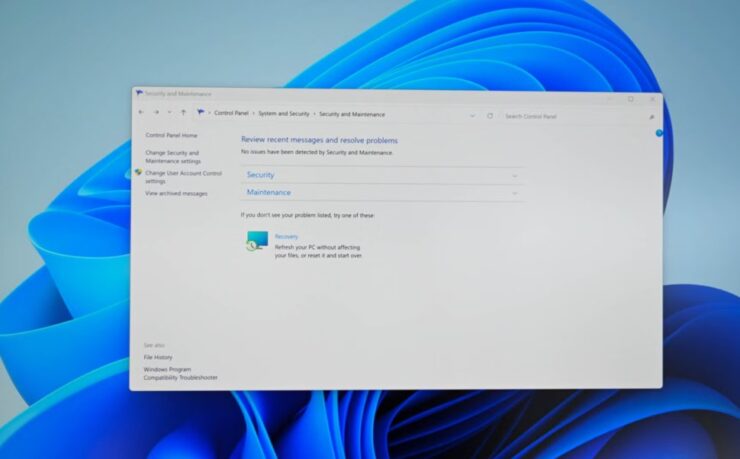Table of Contents
Choosing the right VPS hosting provider isn’t just about comparing prices or counting how many gigabytes of RAM you get.
A truly reliable provider is one that supports your business not only with solid infrastructure but also with dependable, 24/7 human support—because problems don’t wait for office hours.
Whether you’re managing an e-commerce platform, SaaS application, or a development environment, a strong VPS setup can be the backbone of your operation.
This article walks you through the essential things to look for when selecting a VPS provider, focusing particularly on what makes support reliable and why 24/7 availability is not just a bonus—but a necessity.
Why 24/7 Support Matters More Than You Think
Server problems can be unpredictable. An unexpected traffic spike, a misconfigured firewall, or a sudden outage can bring your platform down. That’s where round-the-clock support steps in. Having a provider that offers immediate technical assistance at any hour gives you peace of mind, and in some cases, saves your business from serious losses.
More importantly, quality support doesn’t just mean having someone to talk to. It means access to technically capable staff who know what they’re doing and can solve problems efficiently. An automated chatbot or an outsourced call center following scripts isn’t going to cut it when your database fails at 3 a.m.
Location and Local Expertise Can Make a Difference
When evaluating potential VPS hosts, consider where their data centers are located. Proximity affects latency, but it also says something about how tailored the service is to your region’s regulations, language, and needs.
For businesses operating in Central Europe or planning to expand there, VPS providers in Czech Republic often strike a great balance. Many offer modern infrastructure with local support teams who understand regional data policies and connectivity challenges. Not to mention, Czech-based hosting can offer competitive pricing without compromising on performance or uptime.
Choosing a provider closer to your customer base can help with SEO (via faster loading times) and general user satisfaction. It’s also easier to comply with regional privacy laws when your provider is already aligned with local standards.

The Core of Reliability ─ Uptime Guarantees
Uptime is more than a marketing buzzword. A true 99.9% uptime guarantee should be backed by transparent SLAs (Service Level Agreements) and actual historical uptime data.
When reviewing uptime claims:
- Look for real-time uptime dashboards or third-party monitoring
- Check if they compensate for downtime
- Ask what redundancy measures are in place (power, cooling, failover servers)
Any VPS host can claim high uptime, but few actually provide the infrastructure to back it up. Look for details—not just promises.
Scalability ─ Growing Without Friction
A good VPS provider grows with you. Whether you’re just starting out or scaling rapidly, your hosting should be flexible enough to match your pace.
Look for plans that allow:
- On-demand RAM and CPU upgrades without full migration
- Disk resizing without full reinstallation
- Automatic resource scaling during traffic spikes
Providers that make you jump through hoops for small upgrades are stuck in the past. Agile hosting means less time worrying about infrastructure and more time building your business.
Backup and Disaster Recovery Shouldn’t Be Optional
You’d be surprised how many people don’t think about backups, until it’s too late. A reliable VPS provider offers daily or weekly backups, ideally stored on separate physical infrastructure or in a different data center altogether.
A solid backup plan includes:
- Automated backups at configurable intervals
- Point-in-time recovery
- Snapshot tools for development environments
Ask how easy it is to restore a backup, and how long it takes. If it’s more than a few clicks or longer than 15 minutes, look elsewhere.

Transparent Pricing and Fair Contracts
Nothing breaks trust faster than hidden fees. A good VPS provider is upfront about what you’re paying for—no fine print surprises.
Pay attention to:
- Renewal costs (they’re often higher than first-term promos)
- Bandwidth overage fees
- Charges for backups, control panels, or IP addresses
- Early cancellation policies
Providers that publish full pricing breakdowns and terms show they have nothing to hide. Bonus points if they let you test their platform for free before committing.
Managed vs. Unmanaged ─ What Level of Control Do You Want?
This decision hinges on how much responsibility you’re comfortable taking on. A managed VPS means the provider handles software updates, security patches, and often performance optimization. It’s ideal for small businesses, solo developers, or teams without dedicated IT staff.
An unmanaged VPS gives you root access and full control, but you’re on your own for server maintenance. It’s cheaper but demands a higher skill level and time investment.
Pick based on:
| You Should Choose… | If You: |
| Managed VPS | Prefer peace of mind, lack sysadmin skills, or want faster issue resolution |
| Unmanaged VPS | Want full control, know Linux, and have time to troubleshoot and secure your server |
The Support Test ─ How to Vet a Provider Before You Sign
Don’t take their word for it. Test their support before you become a customer:
- Use live chat or ticket systems and ask a technical question. Was the reply accurate and timely?
- Call support after hours to see if someone answers—or if it routes to voicemail.
- Ask about escalation paths. Can you reach a senior technician if needed?
If their “24/7” promise is real, they’ll be quick, polite, and informative, no matter the time of day.
Control Panel and User Experience
Unless you enjoy SSHing into your server every day, the control panel will be your main dashboard. A clean, functional interface saves time—and sanity.
Look for:
- Easy resource monitoring (RAM, CPU, disk)
- 1-click OS reinstallation and backup restoration
- Quick access to billing and support
Popular options like cPanel, Plesk, or custom dashboards (such as Virtualizor or SolusVM) vary in quality. Test a demo if available.

Final Words
Choosing a reliable VPS provider isn’t just about specs or marketing lingo. You’re buying into infrastructure and people. That means responsive support, real guarantees, and a provider that doesn’t vanish when things get tough.
Whether you’re launching a product, hosting client websites, or running critical services, your VPS should feel like a partner—not just a rented server.

